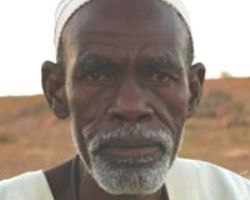Darfur rebel figure against attack on Kordofan
September 2, 2007 (KHARTOUM) — A senior Darfur rebel figure on Sunday condemned an attack last week by rebel forces in the neighbouring Kordofan region which led to dozens of deaths among Sudanese security forces.

International experts estimate some 200,000 have died and 2.5 million have been driven from their homes during 4-1/2 years of fighting in Sudan’s Darfur region.
“We are fighting to defend our people in Darfur,” Jamous said. “So if we left that area and we spread the insecurity to somewhere else it is not advisable,” he said.
He was against “taking the problems of Darfur to other areas”, and added that he had called rebel field commanders and advised them to return to Darfur.
Sudan puts the death toll from the conflict in Darfur, which flared when rebel groups took up arms against the government charging it with neglect, at 9,000.
U.N. Secretary General Ban Ki-moon flies to Sudan on Monday to push for talks between the government and rebels to end the crisis and clear the way for a big peacekeeping force.
Sudan’s interior ministry said the attack by the rebel Justice and Equality Movement (JEM) and the Sudan Liberation Army (SLA) Unity faction on Wad Banda killed 41 policemen.
The rebels said they only attacked a government base in Wad Banda, which they said was being used as the logistics centre for ongoing fighting and government bombing in South Darfur state, some 200 km (120 miles) west of the town.
SANCTIONS?
Ban’s bid to push for a resolution comes amid talk of possible sanctions being used against Sudan.
On Friday British Prime Minister Gordon Brown and French President Nicolas Sarkozy revived the threat of sanctions, but China’s ambassador on Sunday said dialogue, not threats of sanctions, will help create peace and stability.
“Sanctions cannot help to solve the problem,” Li Chengwen said in a rare interview, noting U.S. sanctions imposed since 1997 had prevented railways from upgrading.
Most of Sudan’s goods and those sustaining the world’s largest humanitarian operation in Darfur arrive at Port Sudan but transport costs are sky high and roads plagued by bandits.
A state-owned Chinese company has signed a $1.15 billion contract with Sudan to build a railway from Port Sudan to Khartoum to replace a slow, tattered link.
Li told Reuters: “Dialogue is better than pressure because with sanctions, who will suffer in the end — the people.”
Jamous, a key link between the world’s largest humanitarian operation in Darfur and rebel groups, was moved last year to a U.N. hospital in South Kordofan for medical treatment.
He became a virtual prisoner after the government in Khartoum called Jamous a criminal and said he would be arrested if he left U.N. care. Khartoum has since said it would release Jamous for peace talks due to start in October. Some rebel commanders are reluctant to participate in talks without Jamous.
Under U.N. and African Union mediation, rebels agreed last month to a common platform ahead of talks, although there are still problems dogging the process.
SLA founder Abdel Wahed Mohamed el-Nur, who lives in Paris, has said he will not go to talks until an international force is in place.
A joint U.N.-African Union force hopes to deploy by the end of the year to take over from a beleaguered 7,000-strong AU force which has struggled to defend itself let alone others during three years of deployment.
(Reuters)
